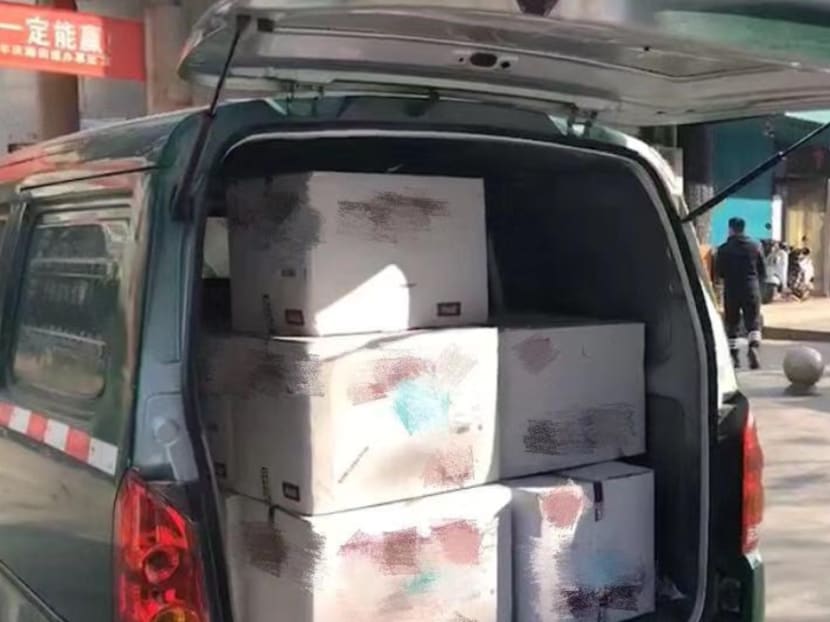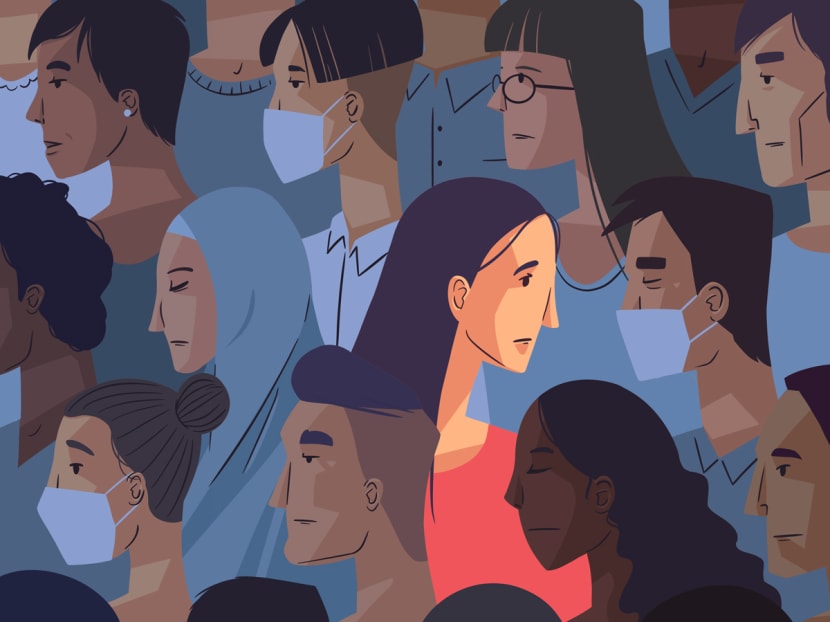‘Don’t say I’m from Wuhan’: Community in S’pore keeps low profile as coronavirus wrecks hometown
SINGAPORE — Their city of origin — the epicentre of the Wuhan coronavirus pandemic — is placed under lockdown, and there is plenty to be worried and anxious about. Now a community of Wuhan people living in Singapore are trying to stay under the radar.
SINGAPORE — Their city of origin — the epicentre of the Wuhan coronavirus pandemic — is placed under lockdown, and there is plenty to be worried and anxious about. Now a community of Wuhan people living in Singapore are trying to stay under the radar.
They are afraid that associating with the Chinese city might make them prime targets for ridicule as xenophobia swept across the globe, stereotyping their tribe as bat-soup drinkers and habitual wildlife eaters, generally a socially irresponsible community to be blamed for the health crisis.
Fear was palpable when TODAY spoke to a 30-year-old tuition teacher who emigrated to Singapore with her parents about 15 years ago and has about 50 relatives back in Wuhan.
The first three minutes into the interview, Ms Chen (not her real name) pleaded: “Please do not write my name in case it causes any unnecessary (repercussions). Now people are very scared of this word, Wuhan.”

Confirming her fears, her employer had instructed her last week to not disclose to her students and their parents that she is from Wuhan. The justification is that “people can easily freak out” and withdraw from her classes, she said.
Ms Chen, a naturalised Singaporean, understands that this is a sensitive period. “People are generally irrational when they become fearful. They will do extreme actions to protect themselves,” she said.
Her employer had also gotten her to declare where she had been and who she had been in contact with for the past one to two months since she returned from a November trip to Wuhan.
“They are concerned if I carry any potential virus around,” said Ms Chen who is taking extra precautions to not meet any of her some 20 to 30 Wuhan friends in Singapore in case any of their relatives had come to visit and carried the virus without showing symptoms.
Another Chinese national from Wuhan, education consultant Ms Li (also not her real name), told TODAY that she and her mother avoid speaking in their Wuhan dialect in public.
“People who didn’t follow the news closely might just associate the keyword (Wuhan) with the virus,” said the 28-year-old permanent resident who had lived in Singapore for 16 years but frequently visits Wuhan.
“They won’t listen to your explanation. To be safe, they would think that they are better off keeping a distance from you.”
‘MOST WUHAN PEOPLE DON’T EAT BATS OR OTHER WILD ANIMALS’
With all the misinformation swirling about, Ms Chen and Ms Li were eager to dispel the misconceptions about Wuhan residents that people here might have.
One came from speculation that the virus originated from wildlife sold at a seafood market in Wuhan, which coincided with the time a video of a female Chinese vlogger tucking into some bat soup went viral. (The video has since been confirmed to be shot in Palau, Micronesia, instead of what was believed to be a Wuhan restaurant.)
People put two and two together and somehow pinned the virus on Wuhan people’s eating habits, but both women said the community is not known for eating wild animals at all.
Ms Li said: “A lot of people say (Wuhan people) deserve it because they eat wild animals. They say their personal hygiene is not up to standard.
“The latter is partially true… There are some elderly who like to sneeze without covering their mouth, or spit. But it is uncommon to hear of people eating wild animals.
“Me and my family have never heard of people eating bats or any similarly strange animals. Maybe there is, but they are really a very small minority.”
Still, the first question many of her Singaporean husband’s relatives popped to her during Chinese New Year gatherings this year was whether she eats bats since she is from Wuhan, she said.
Ms Chen said the practice of eating wild game is a “symbol of authority and power” that is more common among the upper echelons of the Chinese society as such meat is “very expensive”.
“It is a cultural problem,” she said. “The problem is that there are a lot of hidden restaurants serving wild animals patronised by (the rich) who wants to show that they are capable of treating their guests to rarity, such as having a wild bear laid in front of you.”

WUHAN PEOPLE DID NOT COME TO SINGAPORE TO ‘ESCAPE’ FROM VIRUS
The women are also irked by rumours that Wuhan people are escaping to Singapore after realising how serious the issue is.
The allegations have no basis, said Ms Li, pointing out that the outbreak started in the December to January period, which is typically the time when people travel.
She also noted that many of those infected did not display symptoms when they arrived in Singapore, so they would not have known that they are carrying the virus.
Furthermore, she finds it illogical for any Chinese to want to flee to other countries if they know that they are infected.
Not only is healthcare more expensive, there is the possibility of “dying in a strange land” with no kin, she said, citing a Chinese idiom.
“If I have this sickness, I will stay in Wuhan. Or else, I’ll only be more vulnerable,” said Ms Li, whose father is in Wuhan as he had extended his December trip to spend the Chinese New Year break with his folks without knowing that the city would be shut.
BANDING TOGETHER TO HELP WUHAN
While the community had kept a low profile, they are responding to calls for supplies back home, posting appeals for donations on WeChat Moments — a social networking feed only visible to their immediate contacts — as large WeChat groups form to organise efforts.
In Singapore, there are at least two such WeChat groups, and both that are known to TODAY have each attained 500 members — the maximum allowed in one chat.
The networks are mostly made up of students and alumni groups who attended the National University of Singapore (NUS), the Nanyang Technological University and the Singapore Management University, according to Ms Li who majored in statistics in the NUS’ Faculty of Science.
She said these groups are in touch with other student alumni networks overseas, such as one made up of alumni from the University of Oxford and University of Cambridge, to share intel on how to work around the city’s severed transport links to send supplies to resource-strapped hospitals.
Many are moved by videos showing chaotic scenes in hospitals back home and public appeals for donations from at least eight Wuhan hospitals, asking for goggles, masks, medical caps and protective suits for medical workers.
In the past week, Ms Li and her group of friends from NUS had been trying to buy N95 surgical masks directly from local distributors.
A number of distributors turned them away, telling them that they were either sold out or that they supply only to local medical institutions. Still, they managed to get some distributors to sell them.
Her group’s first batch of donations of 8,000 items, comprising surgical masks, goggles and protective suits, reached Wuhan on Jan 28. Ms Li personally forked out more than S$1,000 for the deed.
She is conscious that she might get flak for this, as some might accuse her of “buying away all the masks” when major healthcare stores in Singapore were short of supply.
But Ms Li appealed to Singaporeans to be more understanding.
“When disaster strikes, humanity should unite and help each other. Africa did not wish Ebola upon itself. Australia did not wish the bushfires upon itself either. Of course, China did not wish upon itself the coronavirus,” she said.
“I hope that during this time, everyone can put down all their prejudices and self-protective instincts and help the many tortured victims of this virus first, because they are really innocent.”
She added: “I do not wish to cause any misunderstanding. I am very worried that locals may feel that we deprived them of the masks. We will not, and the Singapore government will not allow us to do that as well.”












